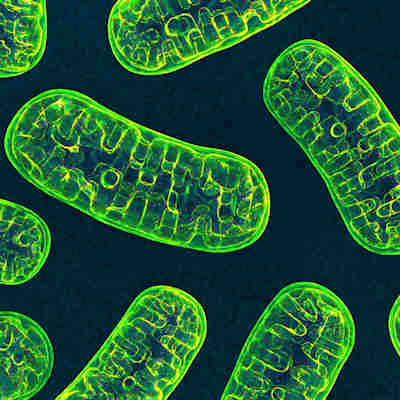 Scientists pinpoint why alveolar macrophages don’t develop properly
Scientists pinpoint why alveolar macrophages don’t develop properly
Researchers in Germany have solved the mystery of what prevents alveolar macrophages from developing properly: the transcription factor CCAAT/enhancer binding protein beta (C/EBPβ). Read More
 Cow mucus-derived lubricant stops HIV, herpes in lab tests
Cow mucus-derived lubricant stops HIV, herpes in lab tests
A synthetic prophylactic gel based on cow mucus is 70% effective against HIV and 80% effective against herpes in lab tests, a new study reveals. Read More
 U of M researchers awarded $19.3M in NIH grants to map senescent cells
U of M researchers awarded $19.3M in NIH grants to map senescent cells
The University of Minnesota (U of M) Medical School and other researchers were awarded $19.3 million in grants from the National Institutes of Health (NIH) Common Fund to map senescent cells in preclinical studies and human tissues. Read More
 Beckman Coulter acquires biotech company ValitaCell in analytics play
Beckman Coulter acquires biotech company ValitaCell in analytics play
Laboratory automation company Beckman Coulter Life Sciences has acquired biotech company ValitaCell for an undisclosed amount, according to a September 13 announcement from the companies. Read More
 Data science, computational biology find same ‘rules’ have shaped organelles
Data science, computational biology find same ‘rules’ have shaped organelles
An international team of researchers, led by Norway’s University of Bergen, has used data science and computational biology to show that the same “rules” have shaped how organelles -- both mitochondria and chloroplasts -- have evolved. Read More
 Scispot launches Datarooms to enable data management in life science labs
Scispot launches Datarooms to enable data management in life science labs
Life science informatics company Scispot has introduced Datarooms, an extension of their Labsheets no-code relational database product that allows life science labs to automate data sharing and standardize data formats. Read More
 Scientists have new theory as to cause of Alzheimer’s disease
Scientists have new theory as to cause of Alzheimer’s disease
A new theory posits that the biophysical properties of cell interiors change as people age, driven in part by “molecular crowding,” and that has implications for neurodegenerative conditions such as Alzheimer’s disease. Read More
 NCI awards $13.3M for cancer research on drug sequencing
NCI awards $13.3M for cancer research on drug sequencing
The National Cancer Institute (NCI) awarded a five-year, $13.3 million grant to a team of researchers to study sequential combinations of targeted inhibitors and immunotherapies for cancer. Read More
 Scientists decrease IBD inflammation with specific protein
Scientists decrease IBD inflammation with specific protein
How a set of molecules interact with each other in gut immune cells could prevent the inflammation seen in inflammatory bowel diseases (IBDs), according to University of Texas Southwestern researchers. The findings suggest a new drug target for treating IBD and related conditions. Read More
 Qiagen, Neuron23 partner to develop companion diagnostic for Parkinson’s drug
Qiagen, Neuron23 partner to develop companion diagnostic for Parkinson’s drug
Diagnostics company Qiagen and early-stage biotechnology company Neuron23 announced a master collaboration agreement to develop a companion diagnostic for Neuron23’s brain penetrant leucine-rich repeat kinase inhibitor to treat Parkinson's disease. Read More
Member Rewards
Earn points for contributing to market research. Redeem your points for merchandise, travel, or even to help your favorite charity.
Research Topics
Interact with an engaged, global community of your peers who come together to discuss their work and opportunities.
Connect
Tweets by @ScienceBoard



